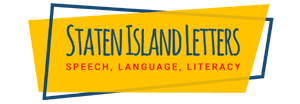NYU is the site of an NIH-funded study of the effect of a medication that increases serotonin in 2 to 6-year-old autistic children. Studies show that brain levels of serotonin are low in many young children with autism, but by age 6, serotonin levels increase to the point where they are similar to typically developing children. We hypothesize that if we replace serotonin during the critical 2 to 6-year-old period we will improve outcome. The serotonin will direct brain cells to wire up in a more typical fashion.
The Study:
We are using a medication called BuSpar, that acts like serotonin. It is a medicine that has been around for many years given to treat anxiety in children and adults. Children are randomly assigned to receive placebo, low-dose BuSpar, or higher dose BuSpar.
Schedule:
Children are followed for six months. They are seen once a month and there is phone contact once a month. At the beginning of the study, we do a full evaluation for autism and IQ, and interview parents. Parents are given the results of that evaluation for their records. At the end of the six-month study, the autism diagnostic observation schedule is repeated to see if improvement has occurred.
Cost:
The study is free, including initial evaluations, and transportation is covered.
If BuSpar proves to be effective, it will likely become a standard therapy for children diagnosed with autism. If you are interested in finding out more about the study, contact Dr. Ruth Nass, Pediatric Neurology at NYU, (212) 263-7753, [email protected]
Dr. Ruth Nass, M.D., Professor of Child Neurology, Child & Adolescent Psychiatry, and Pediatrics at NYU Langone Medical Center, has over 30 years of medical experience and practices in Pediatrics and Neurology. Her research interests include pediatric neurology, learning and developmental disabilities, hemiplegic CP, and autism.
